What are the symptoms and causes of gut imbalance?
Dysbiosis is a gastrointestinal disorder that has variable symptoms but specific causes.
Diarrhoea is an unbalanced gut condition caused by the presence of an excessive quantity of “bad” bacteria in the gut, which irritate it. Irritation caused by diarrhoea may also be accompanied by cramp or abdominal pain.
Our gastrointestinal tract is colonized by microorganisms that live in symbiosis with the body and have numerous beneficial effects on it. The functioning of the gut has a major impact on the vitality and general well-being of the body. In a healthy condition, the gut flora is balanced: the various bacteria are present in the right quantities and in all parts of the gut.
On the contrary, dysbiosis is when there is a reduction in the number of these healthy microorganisms and an increase in the number of potentially harmful bacteria, which interfere with the functioning of the gut.
Bloating is an accumulation of gas in the gastrointestinal tract and creates increasing tension in the stomach. Bloating can also be accompanied by pain and is normally caused by an unhealthy diet or periods of psychophysical stress.
Constipation is defined as difficulty in emptying the bowels. The symptoms of constipation are infrequent bowel movements and/or a sensation of incomplete bowel evacuation, which may even have a major impact on our daily lives.
Every year, approximately 20-30% of women suffer one or more episodes of lower urinary tract disorders: one of these is cystitis, an inflammation of the bladder due to infection. After an initial acute infection of the urinary tract, it often happens that the cystitis reappears periodically and becomes recurrent (when three episodes are suffered within a year or two within six months).
Frequent use of antibiotics may cause dysbiosis and trigger a vicious circle with recurrent urinary tract disorders. Probiotic live lactic acid bacteria promote eubiosis, that is, a balanced gut flora, thus helping the body to prevent the onset of cystitis.
If cystitis is manifested within 24/72 hours of sexual intercourse, it could be post-coital cystitis. This condition also causes symptoms such as burning during urination, the need to urinate frequently and a sense of bloating in the lower abdomen. Post-coital cystitis is a form of inflammation, mainly of bacterial origin, which develops after sexual intercourse due to the mechanical rubbing involved. The latter causes trauma to the female urinary tract and increases the likelihood of bacterial contamination
Abdominal pain is a symptom limited to the part of the body between the end of the pelvis and the beginning of the ribs. There are many different causes, which include trauma due to various types of neoplasm, intestinal infections and autoimmune diseases. Abdominal pain may be accompanied by symptoms such as nausea, vomiting, rumbling or flatulence. According to the cause, the pain may be manifested continuously or in spasms (intermittent and repeated contractions varying in length), with peaks of acute pain alternating with the absence of pain.
The gut performs a key role for our immune system. When the intestinal wall loses its barrier function against bad bacteria, our body is forced to become hyperactive, which leads to a reduction in our immune defences.
Cholesterol is an essential component of cell membranes, which are fundamentally important for many of our vital functions. 80% of the cholesterol is produced by the liver – a minimal part is absorbed in the gut – from the food we eat. The optimum total cholesterol level in primary prevention lies below 190 mg/dl. Values of between 190 and 239 mg/dl are considered borderline while, when they exceed the threshold of 240 mg/dl, they are considered high.
An excessively high level of bad cholesterol in the blood may lead to an accumulation on the artery wall and therefore lead to the onset of atherosclerosis and cardiovascular disease.
Antibiotics have a significant effect on the internal microbiota, that is, the various bacteria present in the gut, thus causing a gut imbalance that takes time to be restored.
Food allergies and intolerances, and a sudden change in diet or an unbalanced diet may cause an alteration of the bacterial flora. This is due to adverse reactions triggered by the body following the consumption of poorly tolerated substances or food.
Research has demonstrated that the brain and the gut are closely connected organs. The gut microbiota is influenced by stress and, conversely, changes in the gut balance may affect mood. In fact, in periods of major stress, the microbiota is less varied and rich.
Stress over preparations, changes in eating habits, time differences and changes in temperature while on a trip may have consequences on our gut flora and, consequently, on the gut balance. In particular, its well-being is at risk when visiting places where rules of hygiene are not respected at all or only to a limited extent.